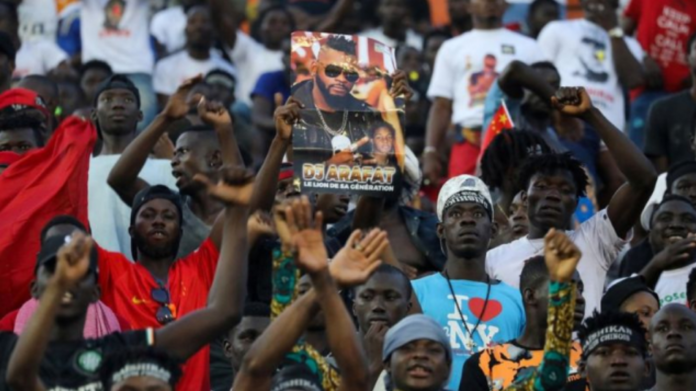Thousands of fans have gathered in Ivory Coast’s capital Abidjan to pay tribute to musician DJ Arafat.
The 33-year-old Ivorian, whose real name was Ange Didier Huon, died in a motorcycle accident earlier this month.
Hundreds of Ivorian artists took part in a stadium concert, with President Alassane Ouattara among its attendees.
Huon’s coffin is due to be brought to the stadium and carried away later to a local cemetery for burial.
SEE THIS: Top Ivory Coast singer DJ Arafat dies in road accident
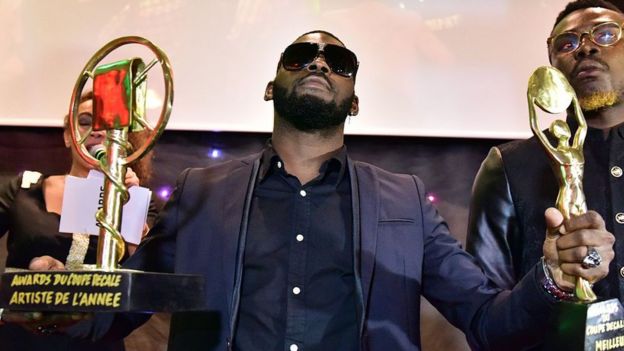
In 2016 and 2017, DJ Arafat was named artist of the year at the Coupé-Decalé Awards
The ceremony was organised after a successful online petition which called on the government to allow the use of Félix Houphouët Boigny stadium, which seats 35,000 people.
The government also pledged $250,000 towards the event and thousands of security personnel were deployed to manage crowds.
DJ Arafat has been referred to as the “king” of coupé-décalé (cut and run), an Ivorian form of dance music.
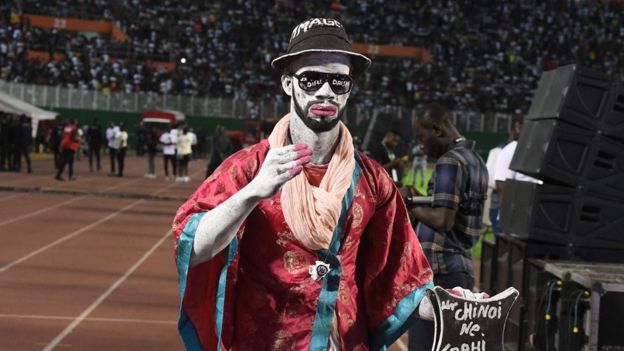
Huon’s fan base are known as “Le Chinois” (The Chinese) because of their high numbers
The musical genre was born in the early 2000s during Ivory Coast’s civil war and emphasised that young people still wanted to have fun despite the conflict.
DJ Arafat came to symbolise the flashy well-dressed lifestyle associated with the music, which features fast percussion, deep bass and hip-hop-style vocals.
MORE: Celebrity bikini trend: Sista Afia joins the train (Photo)
The singer was also known for his love of motorcycles and featured them in his most recent hit, Moto Moto, released in May, which has had more than five million YouTube views.
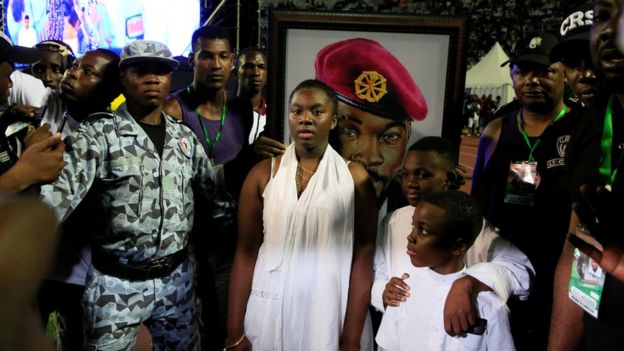
Huon’s children also spoke at the ceremony in Felix Houphouet-Boigny stadium
He released more than 10 studio albums over his 15-year career, and was named best artist of the year at the Coupé-Decalé Awards in 2016 and 2017.
Off stage, DJ Arafat was known for controversy, having faced accusations of domestic abuse.
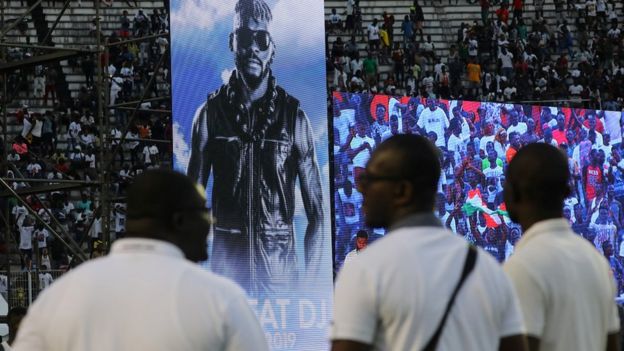
DJ Arafat is credited with influencing the music scenes in France and West Africa
The music star also regularly lashed out at other artists on social media.
“The clashes started because I wanted to show I was number one on the Ivorian music scene,” Huon told Jeune Afrique magazine last year.
“Above all it helped me to invent new sounds, I needed competition to find inspiration. When the music scene is sleeping, you have to wake it up”.
Source: BBC

